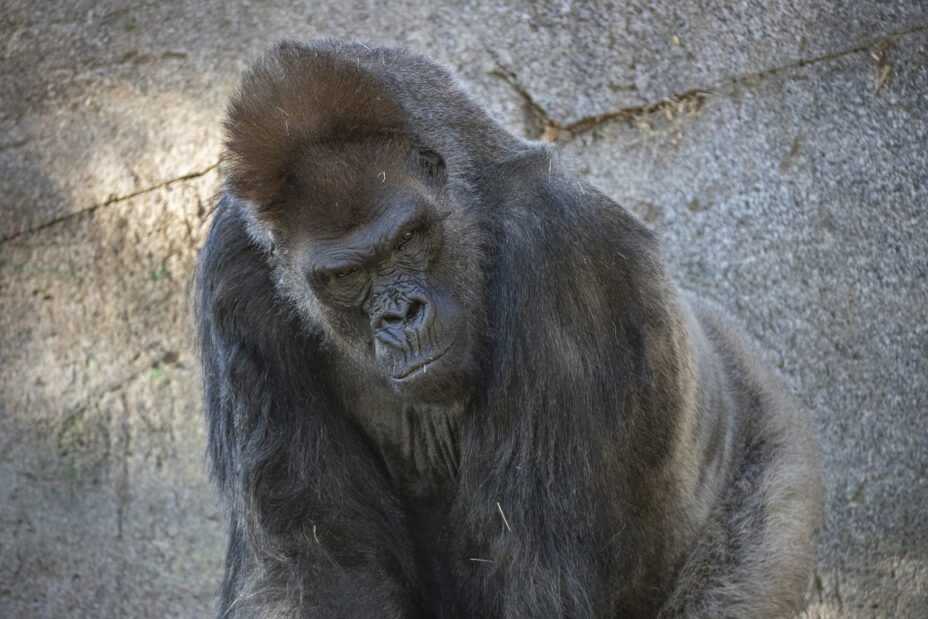San Diego Zoo Safari Park Protects the Heart of a Critically Endangered Gorilla Patriarch
In 2017, a team of medical experts—including specialists in the treatment of both human and wildlife patients—gathered to assess an esteemed elder resident of the San Diego Zoo Safari Park: Winston, a critically endangered silverback gorilla. Today, at age 51, he is considered one of the world’s oldest male gorillas in managed care.
Winston, who has lived at the Safari Park since 1984, is admired by guests and team members alike. As the troop leader within the Gorilla Forest habitat, he fathered nine offspring and adopted two unrelated male gorillas—behavior seldom seen in silverbacks. Winston’s wildlife care team has worked extensively to build and maintain his trust, and to deliver excellent medical care throughout his lifetime. As he aged, Winston predictably began to show signs of decline, but in 2017, his unusual lethargy and reduced appetite prompted concern. His team decided to perform a series of diagnostic tests to identify the cause.
“Winston has always been an amazingly strong primate, but older great apes—particularly male gorillas—are susceptible to heart disease, a primary cause of mortality,” said Matt Kinney, DVM, DACZM, senior veterinarian at the San Diego Zoo Wildlife Alliance. “Given Winston’s symptoms that year, we opted for an echocardiogram. The checkup was very limited, but it allowed us to address immediate clinical concerns and establish a baseline for Winston’s cardiac care.”
Although the overall results were promising, they still showed heart function irregularities. The findings were shared with the Great Ape Heart Project, a cardiac health initiative for great apes in human care, and monitoring of Winston’s condition continued.
Fast forward to January 2021 and Winston’s heart health once again became a central concern—and a prominent media story. Winston and his troop were diagnosed with SARS-CoV-2, making them the first known great apes in the world to contract COVID-19. Given his age, cardiac history, and the nature of the virus, a comprehensive medical team—including cardiologists, anesthesiologists, veterinary specialists and San Diego Zoo Wildlife Alliance health and care professionals—was formed to evaluate the senior ape. A series of extensive tests over the span of six months led to diagnoses of heart, dental and kidney diseases, and other conditions. The team implemented a comprehensive treatment plan, including cardiac medications, supplements and a heart monitor implant.
“The heart monitor is a remarkable innovation, offering invaluable data on Winston’s cardiac health,” said Kinney. “Along with his overall clinical condition and weight, we can make frequent adjustments based on the information received from his cardiac monitor.”
Winston also underwent monoclonal antibody therapy, a synthetic defense against COVID-19, which was crucial to his recovery. Since then, the Safari Park’s wildlife health and care teams, alongside Centers for Disease Control staff, have been monitoring Winston and his troop for potential long-term effects of COVID-19 on gorillas.
“Caring for Winston throughout the years have been an extraordinary honor for our wildlife health and care teams,” said Kristi Burtis, vice president of wildlife care at the Safari Park. “He is undeniably the beloved member of our conservation park. His thriving exemplifies our commitment to conservation and the deep passion of those who care for him.”

Category: Animals, Donations, Historical, Local News, Nonprofit







